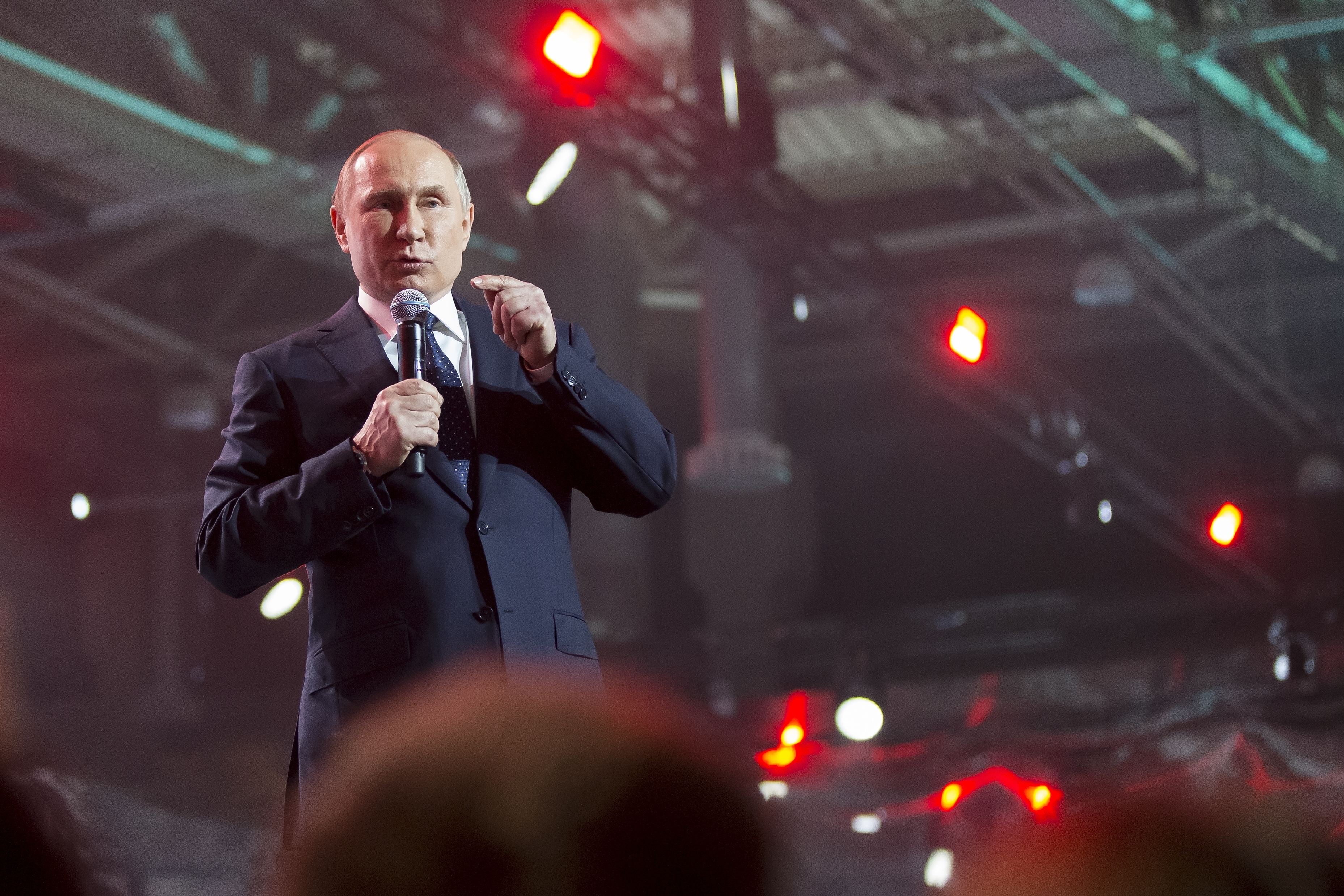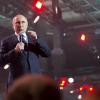
There’s little suspense about Sunday’s Russian presidential election, but a lot of questions — and concerns — over what Vladimir Putin might do next with another six-year term in his pocket and a st
There’s little suspense about Sunday’s Russian presidential election, but a lot of questions — and concerns — over what Vladimir Putin might do next with another six-year term in his pocket and a string of unresolved confrontations with the West.
Across nine time zones, Russians are widely expected to give the 65-year-old former KGB officer a fourth term in office Sunday, at a time when tensions with the West have skyrocketed to levels not seen since the Cold War.
The Kremlin is at odds with the U.S. and its allies over alleged election-meddling, the nerve gas attack on an ex-Russian spy living in Britain, the future of Syria, Ukraine and Iran. In his final campaign rallies, including one in the Crimean peninsula seized by Moscow from Ukraine four years ago, Mr. Putin showed little sign of pulling back after Sunday’s vote.
“If one thought that perhaps Putin would try to de-escalate ahead of this weekend, we have only seen the opposite,” Boris Zilberman, a Russia expert at the Foundation for Defense of Democracies, said in an interview.
The sense of foreboding is shared by U.S. allies across the Atlantic.
“Given the trajectory of the last six years, the die is cast for what will happen the next six,” said Dr. Alan Mendoza, executive director of the British-based think tank the Henry Jackson Society. Mr. Putin “has sped up his meddling and pushed Russian influence even further afield. There are no signs this will change.”
While some blame the West’s inability after the Cold War to establish a new international security system that firmly included Russia — Mr. Mendoza said blame is unimportant compared to future action.
“The question,” he said, “is not, ‘What is Putin going to do?’, but how are we going to respond and push his face him down and put him back into his box?”
Experts see two trends intertwining — Mr. Putin’s rejection of the Western-inspired reforms of his predecessor, Boris Yeltsin, and the expansion of an Russian foreign policy to mask social and economic weaknesses at home. Even now, many ordinary Russians see the authoritarian Mr. Putin as a calming presence in the aftermath of the chaotic and economically troubled Yeltsin years.
“The fact of the matter is Putin’s continued adventurism abroad, brazen violations of international norms and rules, and disregard for rule of law will only ensure that the next 6 years will only be worse for the average Russian citizen.” said Mr. Zilberman.
Many ordinary Russians say the country’s precarious international standing was just one more reason to stick with Mr. Putin.
“We will withstand this onslaught,” Svetlana Andrus, a ribbon round her neck in the colors of the Russian flag, told the Reuters news agency during a rally in Moscow. “We will support our country and Vladimir Vladimirovich.”
The brazen hit job on ex-Russian spy Sergei Skripal on March 4 in the provincial British city of Salisbury could be trivial compared with more audacious actions that Moscow may be planning if Mr. Putin is “emboldened” by a victory, an American national security source with more than two decades experience working in Russia and the former Soviet Union argued.
“It’s not that Putin was exactly shackled before, but once he has the election victory behind him, it will be like a new mandate,” the source said. “He’ll be emboldened.”
Challenging Mr. Putin may require tougher steps after Sunday’s election is past, Russia watchers say.
Mr. Mendoza backed significantly harsher sanctions than those imposed after Russia’s annexation of Crimea, which analysts questioned given that Russian counter-sanctions damaged some European export industries.
“While there has been some movement, we could really squeeze their access to capital market and starve their ability to fund themselves,” he said. “It’s a weak economy and if we hit it the right way, Mr. Putin will slink back to Moscow with his tail between his legs.”
Economic woes
Economically, Mr. Putin’s third term as president was a roller-coaster ride, only turning up markedly in recent months.
In 2015 falling oil prices rattled the ruble and sent inflation soaring above 16 percent, triggering a roughly two-year recession. Western sanctions also cut into national growth, although local Russian producers rushed to fill some of the import markets.
Late last year, however, Russia’s central bank announced inflation had dipped below its target of 4 percent and that final 2017 figures showed the economy was growing again.
International economists credit the Kremlin with policies that helped stabilize the situation, but overall GDP growth also remains extremely sluggish. World Bank estimates place it around 2 percent this year and 1.8 percent per year in future years.
Everyday Russians feel the stagnation — the reason why Mr. Putin boasts about Russia’s foreign successes instead of recent economic progress.
“By continuing to focus the attention of Russians to external events and controversies Putin has not had to explain why the average Russian is worse off today than they were six years ago,” said Mr. Zilberman.
Get out the vote
Mr. Putin has towered over Russia’s political landscape for the past 18 years and polls give him a roughly 80 percent approval rating.
But this year the Kremlin grew so worried about low voter turnout that the Central Election Commission budgeted $13 million for consultancy firms to pump out flamboyant TV ads featuring everything from sex to anxiety jokes to persuade voters to cast ballots.
While official turnout for presidential elections since the Soviet Union’s collapse in 1991 has been between 64 and 69.7 percent, the parliamentary elections of 2016 saw fewer than 50 percent of voters go to the polls.
Fearful of apathy — and a field of eight candidates who pose no real challenge — Mr. Putin ditched his United Russia party, ran as an independent candidate and spent the past three months traversing the massive Russian countryside on highly choreographed campaign stops to press the flesh at factories, schools and even the occasional mosque.
Anti-corruption critic Alexei Navalny, seen as the greatest threat to Mr. Putin’s popularity, has also been banned from the race.
“What is extraordinary about Putin’s conduct this election,” said Mr. Mendoza, “for someone who looks so confident from the outside, he still pushed out Navalny and made sure he is running against the seven dwarfs. It tells you something about his belief in his ability to have a fair fight and it makes one wonder what would happen if the heat was really turned up.”
• Guy Taylor contributed to this article.






